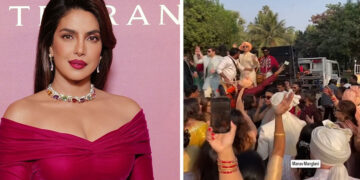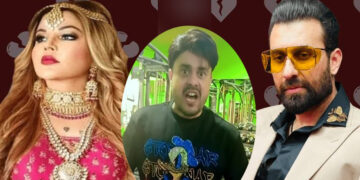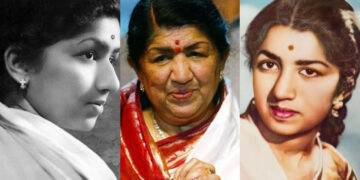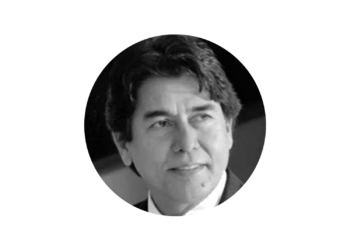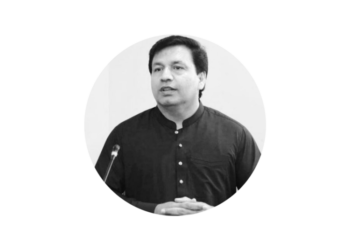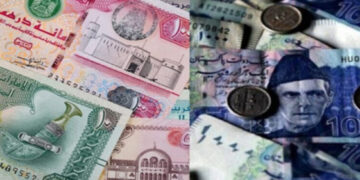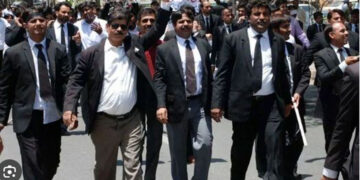![]() Follow Us on Google News
Follow Us on Google News
Somewhere across our memories lies that afternoon of October 1971 when we disembarked at Cantt Station in Karachi in the arms of our father. Karachi’s kindness to the poor was becoming proverbial; merely arriving there was a certificate of employment. This quality gave the city the distinction of being the only one in Pakistan where people from every district of the country came, earning it the moniker “Mini Pakistan.” It was a unique city, its streets off-limits to hatred, ugliness, and jealousy. Kindness and generosity were its symbols. When someone was ill, it was like a pomegranate—ready to give abundantly. There were always more givers than takers, perhaps explaining why begging became a permanent profession there.
If one could embody this city in human form, it would surely emerge as the elder brother of Abdul Sattar Edhi. The first Abdul Sattar Edhi of this city was the city itself; others merely followed suit. It was also a doctor and a healer, both medicine and treatment combined. It functioned as a teacher and a school, with its mornings representing the light of new possibilities and evenings hoping for an end to difficulties.
In his verses, Jon Elia revealed the richness of poverty, while Anwar Maqsood distributed the joy of smiles. Daulat Fayyaz Akbarabad reminded us of Dilawar Figar Abbasi, Mushtaq Yusufi erased chaos, and Fatima Sughra Bajia became the mother of the entire city. Aln Faqeer’s ‘Ho Allah!’ resonated, making the unseen God palpable. Abida Parveen embodied Shah Latif’s pain through her melodies. Dr. Muhammad Ali Shah used to astonish the world by reattaching the severed legs of laborers and Dr. Jumma Khan, by opening the skull, illuminated the brain’s mysteries.
In the courtyard of the poor, the fragrance of song would rise in the evening, and the scent of a laborer’s sweat would emanate. It wasn’t the pride of an artist’s labor celebrated, but rather the labor of an artist. Every shade of Urdu existed, and delights like Sabri’s Nahari, Student’s Biryani, Delhi’s Haleem, Bando Khan’s Kebabs, and Fresco’s Rabri were savored without complaints.
Then, something changed—perhaps the evil eye, harm, a binding spell, jinn, black magic, envy, rivalry, or a grand lie. Perhaps the wail of the poor hit so hard that Karachi was no more. In a city that attracted those seeking a better life for the poor, darkness descended, forcing the rich to migrate, factories to shut down, and bodies to pile up. Hatred, animosity, stubbornness, and envy ruled the streets. The divine temple target killer loomed, and Edhi left. The threat of sculpting this city cannot be taken lightly. Who will manage the divine temple target killer now? Perhaps for this reason, Edhi also left. The doctor himself fell ill, and there was no remedy for the patient. As the city woke up in the morning, blood started flowing from its mouth, and by evening, a graveyard buried the hopes. Its emotions withered away.
“When Jon Elia succumbed to injuries, Anwar Maqsood remained for the wounds. Moin Akhtar and Bushra Ansari trembled for their own smiles. Dalawar Faggar, who reminded of Akbar, became a memory, and Yusufi, in fear of Zulekha, became imprisoned at home. Fatima Suraiya’s children faced challenging times. In the chaos of humanity, Aln Faqeer raised the last cry of ‘Ho Allah!’ and departed to Allah. Abida Parveen’s voice, which had embodied Shah Latif’s pain, was also silenced by unknown individuals. When Hakim Saeed went to show the wounds on his soul, he ended up with a body full of wounds. The recitation of Wahid Zafar Qasmi’s naat and Shaker Qasmi’s recitation touched the ears but was deprived of reaching the hearts. Shah Ahmed Noorani and Yusuf Banoori’s light succumbed to darkness. Jameel Jalibi saw the pages becoming a graveyard of words, and Zia Mohyuddin’s stories were lost in the cries of the wounded. Ashraf Tai’s karate and Naseer Bhola’s sporting spirit faded away. Dr. Muhammad Ali Shah stood in the line of killers, and Dr. Jumma Khan’s experiments came to an end.
When the hardworking person’s sweat started to smell, blood was shed. Near the domain of art, there was something left for the pride of the laborer, and near the non-laborer, something was left for the art. All the colors of Urdu also faded away, then the law regained consciousness. The result of this awakening was also a bullet. The one who was speaking first was now the one facing the law. And when this turn also ended, the voice of some subtle tyranny echoed, ‘Alhamdulillah, now everything is fine. Is it okay?’ Sabri’s nihari, student’s biryani, Delhi’s haleem, Bundu Khan’s kebabs have all arrived. But now, all of this doesn’t sit well with the stomachs. The Karachi that buried itself long ago, where a smile represents health. People still smile, but their smiles remind them of the mental asylum. Everyone considers this sick city as sick. People ask for food without salt, tea without sugar, and paratha without oil. The educational institutions of this city have been barren for 35 years, so here, the educated are no longer found. Now the entire city considers itself Aristotle.


